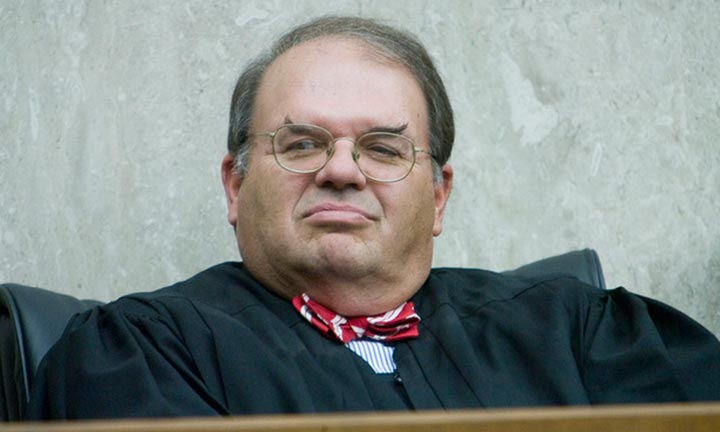Judge Leon Will Not Be Deterred: Fokker Case Will Not Be Deferred

In a stunning move, United States District Court Judge Richard Leon, who Erich has dubbed “The Lion of Constitution Avenue” has rejected the proposed Deferred Prosecution Agreement (“DPA”) between the Department of Justice and Dutch aerospace services firm Fokker Services B.V. We’ve been following this case pretty closely here at Sanction law; see our past posts here, here, and here. In his memorandum opinion, Judge Leon was blunt:
“In my judgment, it would undermine the public’s confidence in the administration of justice and promote disrespect for the law for it to see a defendant prosecuted so anemically for engaging in such egregious conduct for such a sustained period of time and for the benefit of one of our country’s worst enemies.”
On the terms of the agreement, the judge was particularly caustic. Regarding subject of the lack of an independent monitor assessing Fokker’s improved export control compliance, he wrote “one can only imagine how a company with such a long track record of deceit and illegal behavior ever convinced the Department of Justice to agree to that!” Judge Leon also took issue with the lack of prosecution of any individuals for their role in Fokker’s sanctions evasion, the continued employment at the company of individuals responsible for the conduct, the length of the DPA (18 months), and the amount of the penalty ($21 million).
It is a bit surprising that Judge Leon even had to take the extraordinary step of rejecting the DPA. In the four (4) months since the last hearing, the general assumption at least in the Ferrari & Associates office was that Fokker and DOJ were renegotiating terms. This stemmed from the fact that Leon strongly hinted he was going to reject the DPA, go so far as to call it a “borderline abuse of prosecutorial discretion.”
Leon’s torpedoing of the Fokker agreement is only the latest instance of increased judicial scrutiny of DPAs. In 2013, Judge Gleeson in the Eastern District of New York expressed serious reservations regarding DOJ’s deal with HSBC over the bank’s involvement in narcotics-trafficking related money laundering, as well as sanctions busting. Though he eventually relented, Gleeson made it abundantly clear, DOJ’s contrary opinion notwithstanding, he had the authority to reject a DPA.
As neither the government nor representatives from Fokker have yet offered comment, it remains to be seen what will happen going forward. In its supplemental memorandum in support of the DPA, the government strong argued that Judge Leon did not have the authority to reject the agreement. From our vantage point in the courtroom back in October, he did not agree. During the AUSA’s presentation, he made it very clear he had “zero doubt,” punctuating his remarks by forming a 0 with his hand, that rejecting the DPA was within his purview.
It is a possibility the government and Fokker could appeal, claiming that Judge Leon acted outside the scope of his authority. In June of last year the 2nd Circuit Court of Appeals overruled a decision by Judge Jed Rakoff to reject a settlement between Citigroup and the SEC, stating the judge had applied an “incorrect legal standard.” The difference in this case is the Citigroup settlement was not a criminal prosecution, whereas the Fokker case falls under the mandates of the Speedy Trial Act. As Judge Leon wrote, a plain reading of 18 U.S.C. 3161(h)(2) appears to explicitly require judicial consent to a delay due to deferred prosecution.
“Any period of delay during which prosecution is deferred by the attorney for the Government pursuant to written agreement with the defendant, with the approval of the court, for the purpose of allowing the defendant to demonstrate his good conduct (emphasis added).”
The parties could also come back to Judge Leon with terms he would find acceptable, though one questions why they did not simply do this in the first place.
Regardless, both the Justice Department and defense attorneys should be on notice– federal judges are increasingly wary of settlements they deem insufficiently harsh. And for those tasked with defending future Iran sanctions violators before Judge Leon: Good luck.
The author of this blog is Erich Ferrari, an attorney specializing in OFAC matters. This post was written by Samuel Cutler, Policy Advisor at Ferrari & Associates, P.C. If you have any questions please contact them at 202-280-6370 or ferrari@ferrariassociatespc.com or cutler@ferrariassociatespc.com.


